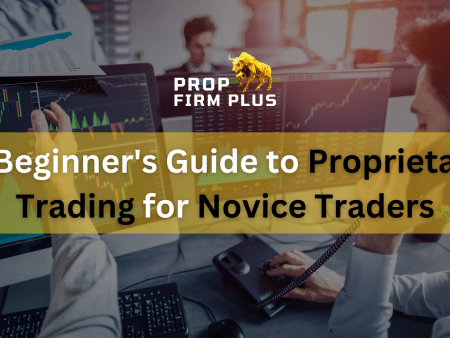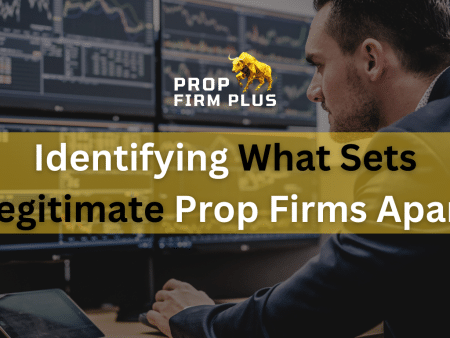
Defining Prop Trading
Prop trading, also referred to as proprietary trading, is taking part in a funding program run by futures proprietary firms. Traders can use the firm’s funds to execute trades if they meet the requirements outlined in these companies’ assessments. Under this arrangement, the trader is entitled to a portion of the profits made, but the prop trading firm assumes the risk of any trading losses suffered by the trader. By using the resources of the proprietary firm to minimize personal risk, this model gives prop traders a substantial advantage over traditional futures trading, where individuals utilize their own funds.
How Are Prop Trades Made?
A trading desk at a financial institution, broker, investment bank, hedge fund, or other liquidity source engages in proprietary trading, when the firm uses its money and balance sheet to carry out self-promoting financial transactions. Typically, these transactions involve speculation and are carried out via a range of derivatives or other intricate financial instruments.
Advantages of Proprietary Trading
A financial institution or commercial bank can gain greatly from proprietary trading, chief among them being increased quarterly and annual earnings. Commissions and fees are the means by which a brokerage firm or investment bank generates income when trading on behalf of its clients. An institution can receive 100% of the earnings from an investment through the proprietary trading process, even though this revenue may only make up a relatively small portion of the entire money invested or the gains made.
The institution’s ability to accumulate a stockpile of securities is the second advantage. This is beneficial in two ways. First, any speculative inventory enables the organization to provide customers with a surprise benefit. Second, as it gets more difficult to buy or sell stocks on the open market, it assists these institutions in being ready for down or illiquid markets.
The second advantage is related to the last benefit. A financial institution can become a significant market maker through proprietary trading by offering liquidity on a particular security or set of securities.
A Proprietary Trading Desk Example
The private trading desk is typically “roped off” from other trading desks in order to maximize effectiveness and maintain the institution’s clientele. This desk operates independently and is in charge of a percentage of the financial institution’s revenue, unrelated to client activities.
But as previously mentioned, private trading desks can also serve as market makers. When a client wishes to trade a highly illiquid security or a big quantity of a single security, this scenario occurs. A proprietary trading desk will act as the buyer or seller and start the other side of the client trade because there aren’t many buyers or sellers for this kind of deal.
Why Do Firms Take Part in Prop Trading?
Proprietary trading is a tactic used by financial organizations to increase revenues and capitalize on perceived competitive advantages. Prop traders are free to take on higher levels of risk without having to answer to clients since they employ the firm’s own money instead of funds that belong to its clients. They can even participate in what is known as the prop firm challenge. The latter allows funded traders the opportunity to grow and hone their skills practically risk-free.
Can Banks Participate in Prop Trading?
Large banks are prohibited from utilizing their own accounts for short-term proprietary trading of securities, derivatives, and commodity futures, as well as options on these instruments, by the Volcker Rule, which was put into place in reaction to the financial crisis of 2007–2008. By prohibiting banks from making the kinds of speculative investments that fueled the Great Recession, the rule aims to protect consumers.
Conclusion
When a financial institution trades on its own behalf instead of representing its clients, this is known as proprietary trading. Financial organizations are permitted to retain all investment earnings from proprietary trades, which enables them to optimize their profits. Proprietary trading desks are a common feature of organizations like hedge funds, brokerage firms, and investment banks. Large banks are prohibited from participating in prop trading, though, in an effort to reduce the amount of speculative investments that fueled the financial crisis of 2007–2008.










